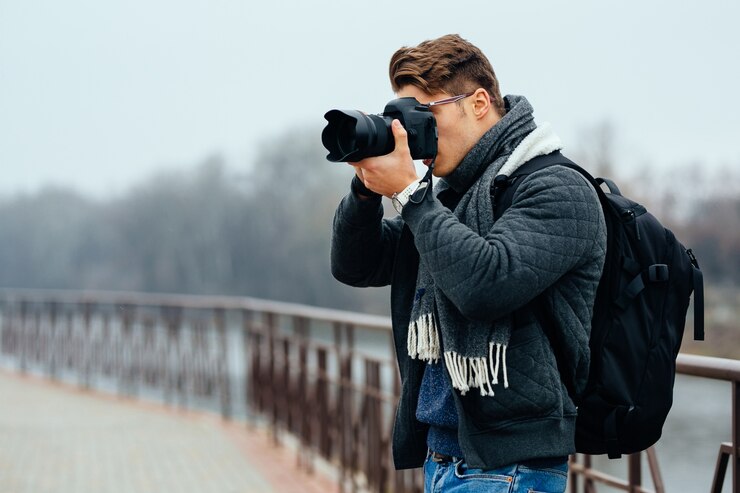Photography transcends mere picture-taking. It is an expansive art form encompassing various genres with unique styles and techniques. This diversity allows photographers to express a broad spectrum of ideas and emotions, capturing everything from the mundane to the magnificent. Whether exploring the raw beauty of nature or the intimate moments of human interaction, each genre offers a lens through which to view the world.
Enrolling in comprehensive photography courses can be invaluable for those eager to delve deeper into this multifaceted field. Such courses offer structured learning on different genres, equipping students with the knowledge and skills to specialise or diversify their photographic endeavours. This article explores several prominent photography genres, shedding light on their distinct characteristics and offering insights into how each can be mastered.
Introduction to Editorial Photography
Editorial photography is a genre that primarily focuses on storytelling and journalism. These images illustrate articles, often in magazines, books, and other publications. Unlike commercial photography, the intent here is to inform or engage viewers rather than advertise a product. Successful editorial photographers are skilled in capturing the essence of a story through their lenses, often dealing with real-world issues or events as they unfold.
Learning about editorial photography in a structured course can teach aspiring photographers to work under diverse conditions, manage deadlines, and collaborate with other media professionals to craft compelling visual narratives.
Commercial Photography: Tips and Techniques
Commercial photography is pivotal in the world of advertising and marketing. This genre includes everything from product photos to corporate portraits that promote goods or services. Fundamental techniques in commercial photography involve mastering lighting setups to highlight the product, understanding angles that best represent the subject, and knowing how to evoke the desired consumer response.
A good photography course will cover these aspects, providing practical experiences through project-based learning where students can develop a portfolio that appeals to future clients.
Portrait and Fine Art Photography Essentials
Portrait and fine art photography are closely related genres that focus on aesthetics and human expression. Portrait photography needs the personality and mood of the subject, while fine art photography is more about the photographer’s vision as an artist, often imbued with deeper symbolic meanings.
Essentials for these genres include understanding how to manipulate lighting, choosing appropriate backgrounds, and mastering composition and framing to enhance the subject matter. These skills are typically honed through extensive practice and critique, often within a course setting where students receive direct feedback on their work.
Exploring the Dynamics of Landscape Photography
Landscape photography captures nature and the environment, ranging from vast, expansive views to intimate natural details. This genre requires understanding natural lighting, seasons, and weather conditions, as these elements dramatically affect the landscape’s appearance and the photograph’s mood.
Photographers learn to use wide-angle lenses to capture expansive scenes and employ techniques like prolonged exposure to create dynamic images of moving elements, such as water or clouds. Engaging in photography courses that include fieldwork can provide invaluable practical experience in diverse environments.
Sports and Action Photography Techniques
Sports and action photography is a challenging yet thrilling genre that captures movement and intense moments within various sporting events. It requires fast reflexes, precision timing, and anticipating action before it unfolds. Techniques include using fast shutter speeds to freeze action, employing continuous shooting modes to capture sequences, and selecting the right lenses for varying distances and conditions.
Courses in this genre often focus on the technical aspects of camera settings and strategies for positioning and timing to capture peak action moments effectively.
The Role of Technological Advancements in Modern Photography
As photography continues to evolve, technological advancements have had a profound impact, particularly on how photographers approach different genres. Modern cameras and editing software have introduced unprecedented control and creativity, enabling photographers to push the boundaries of traditional photography. High-resolution digital cameras, sophisticated drone technology, and powerful editing platforms like Adobe Photoshop and Lightroom have revolutionised the possibilities within each photographic genre.
For instance, in landscape photography, drone technology allows photographers to capture stunning aerial perspectives that were once inaccessible. Similarly, advancements in low-light sensors and high dynamic range (HDR) imaging help photographers master challenging lighting conditions, thus expanding the potential for artistic expression in genres like wildlife and event photography. Additionally, the advent of mirrorless cameras offers enhanced video capabilities, which is particularly beneficial for those working in dynamic fields like sports and action photography.
These technological tools improve the technical quality of photos and create a creative space for photographers to experiment and innovate within their preferred genres. Understanding and mastering these tools can provide photographers with a significant competitive edge, making it an essential area of focus for any comprehensive photography course.
Exploring different photography genres enriches a photographer’s skills and opens up numerous creative and professional opportunities. Each genre, from sports photography’s structured dynamism to fine art’s creative depth, offers unique challenges and rewards. Enrolling in a reputable online photography course can provide the guidance and structure to explore these genres thoroughly.




0 Comments